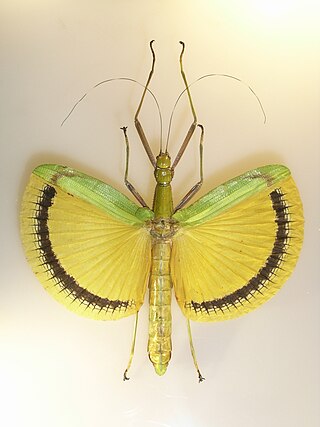
Apollo is one of the Olympian deities in classical Greek and Roman religion and Greek and Roman mythology. Apollo has been recognized as a god of archery, music and dance, truth and prophecy, healing and diseases, the Sun and light, poetry, and more. One of the most important and complex of the Greek gods, he is the son of Zeus and Leto, and the twin brother of Artemis, goddess of the hunt. He is considered to be the most beautiful god and is represented as the ideal of the kouros. Apollo is known in Greek-influenced Etruscan mythology as Apulu.

Alise-Sainte-Reine is a commune in the Côte-d'Or department in the Bourgogne-Franche-Comté region of eastern France.

Necrosciinae is a subfamily of the stick insect family Lonchodidae, with its greatest diversity in South-East Asia.

Tasgetius, the Latinized form of Gaulish Tasgetios or Tasgiitios, was a ruler of the Carnutes, a Celtic polity whose territory corresponded roughly with the modern French departments of Eure-et-Loir, Loiret, and Loir-et-Cher. Julius Caesar says that as Roman proconsul he made Tasgetius king in reward for his support during the Gallic Wars. His reign would have begun in late 57 BC, following Caesar's campaign against the Belgic civitates in northern Gaul that year; it ended with his assassination in 54 BC. The overthrow of a king appointed by Caesar was one of the precipitating events that led to the pan-Gallic rebellion of 52 BC under the Arvernian leader Vercingetorix.



